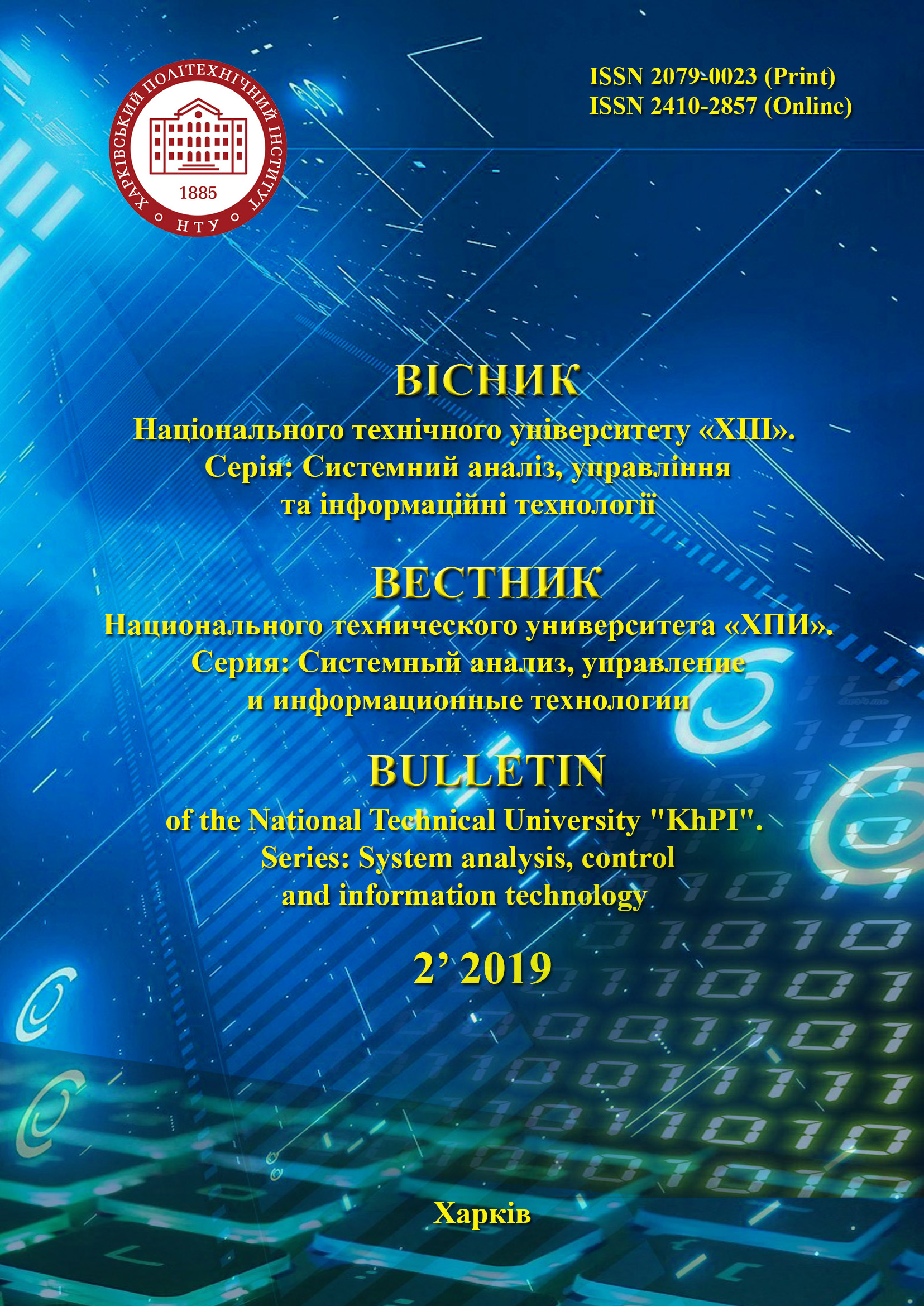FORMATION OF PROFESSIONAL COMMUNICATIVE COMPETENCE DURING THE PROJECT-FOCUSED LEARNING IN TERMS OF USING SCRUM METHODOLOGY
DOI:
https://doi.org/10.20998/2079-0023.2019.02.05Keywords:
Scrum methodology, professional competence, sprint, retrospective, product owner, mini-groupsAbstract
The practical experience of formation of professional competence of students of Kharkiv computer-technological college of National Technical University ”Kharkiv Polytechnic Institute” in terms of using Scrum methodology is considered. The application of this methodology took place during the training of future technicians-programmers. The Scrum methodology was successfully integrated into project-based learning. The owner of the software product was the head of practice, who developed the terms of reference. During the lessons, mini-groups were formed consisting of a Scrum master, a web developer, a tester, who before starting the development process estimated the number of hours required to complete the project. Students developed an information website for a month. The group project consisted of four sprints of one week each. Under the leadership of the Scrum master, short daily meetings were held at which each development participant reported on the amount of work performed. Adjustment and direction of the team's activities in a single direction, setting priorities, focusing on certain types of work, timely identified problems, improved team spirit and communication in the team. At the end of the week there was an hour-long meeting called retrospective, during which the team reported on the successes and failures of the current week, discussed the action plan for the next week. The analysis of the work was carried out with the help of the Scrum Board and the corresponding diagrams. At the end of each week, the teacher conducted on going monitoring of the project task, made the necessary comments and suggestions. After the successful completion of the project task, the students had a successful presentation of the developed projects. The head of the practice put the final assessment of each mini-group. As a result, such features of professional communicative competence as the ability to use the norms of business communication, to work in a team, to establish favourable communication, the ability to defend their opinions, to choose their own communication strategy were formed.
References
Volfson B. Gibkoe upravlenie proektami i produktami [Flexible project and product management]. St. Petersburg, Piter Publ., 2015. 144 р.
Kniberg H. Scrum and XP from the trenches. InfoQ Publ., 2007. 168 p.
Cohn M. Succeeding with Agile: Software Development Using Scrum. Addison-Wesley Prof. Publ., 2009, 504 p.
Greene J., Stellman A. Learning agile: Understanding scrum, XP, lean, and kanban. Oreilly & Associates Inc. Publ., 2014. 448 р.
ScrumAllience. URL: https://www.scrumalliance.org (access date: 05.09.2019).
Hass K. B. Managing complex projects: a new model. Management Concepts Inc. Publ., 2009. 298 p.
Delhij A. Rukovodstvo eduScrum "Pravila igry" [Guide eduScrum "Rules of the game"]. URL: http://eduscrum.nl/file/CKFiles/The_eduScrum_Guide_RU_1.2.pdf. (accessed: 05.09.2019).
Peha S. Agile Schools: How Technology Saves Education. URL: https://www.infoq.com/articles/agile-schools-education (accessed: 05.09.2019).
Yakovishina T. Agile-metodologiya yak chinnik modernizaciyi suchasnogo osvitnogo prostoru [Agile methodologies in the training of software engineers]. Aktualni pytannia humanitarnykh nauk [Topical issues of the humanities]. 2018, vol. 2, no. 19, pp. 217–223.
Chorna A. V. Agile-metodologiyi u procesi navchannya inzheneriv-programisti [Agile methodologies in the training of software engineers]. Informacijni tehnologiyi v osviti ta nauci: zbirnik naukovih prac [Information technology in education and science: a collection of scientific papers]. Melitopol, MDPU im. Bogdana Hmel'nyc'kogo Publ., 2018, no. 10, pp. 350–355.
Kruglik V. S. Struktura profesijnoyi kompetentnosti majbutnogo inzhenera-programista [Structure of professional competence of the future software engineer]. Pedagogichnij diskurs: zbirnik naukovih prac [Pedagogical discourse: a collection of scientific works]. Hmelnickij, HGPA Publ., 2016. No. 21, pp. 69–75.
Manifesto for Agile Software Development. URL: https://agilemanifesto.org/ (accessed: 05.09.2019).
Prochuhan D. V. Umovi samostijnoyi roboti majbutnih tehnikiv-programistiv pid chas vikoristannya interaktivnih elementiv distancijnogo kursu [Independent working conditions of future technicians-programmers while using interactive elements of the remote course]. Teoriya i praktika upravlinnya socialnimi sistemami [The theory and practice of social systems management]. 2019, no. 2, pp. 85–99.
Downloads
Published
How to Cite
Issue
Section
License
Copyright (c) 2019 Bulletin of National Technical University "KhPI". Series: System Analysis, Control and Information TechnologiesAuthors who publish with this journal agree to the following terms:
- Authors retain copyright and grant the journal right of first publication with the work simultaneously licensed under a Creative Commons Attribution License that allows others to share the work with an acknowledgement of the work's authorship and initial publication in this journal.
- Authors are able to enter into separate, additional contractual arrangements for the non-exclusive distribution of the journal's published version of the work (e.g., post it to an institutional repository or publish it in a book), with an acknowledgement of its initial publication in this journal.
- Authors are permitted and encouraged to post their work online (e.g., in institutional repositories or on their website) prior to and during the submission process, as it can lead to productive exchanges, as well as earlier and greater citation of published work (See The Effect of Open Access).


